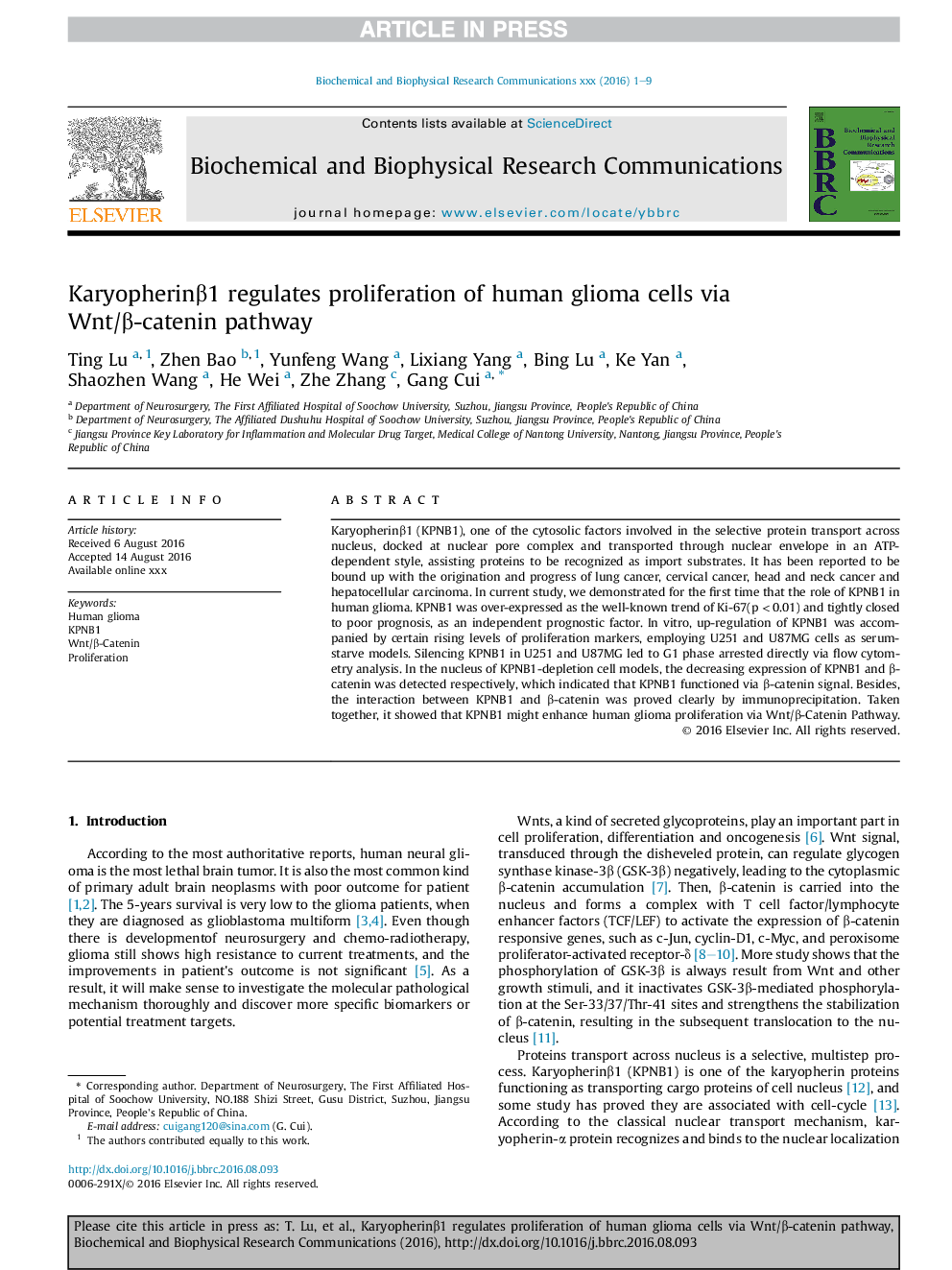| Article ID | Journal | Published Year | Pages | File Type |
|---|---|---|---|---|
| 5506717 | Biochemical and Biophysical Research Communications | 2016 | 9 Pages |
Abstract
Karyopherinβ1 (KPNB1), one of the cytosolic factors involved in the selective protein transport across nucleus, docked at nuclear pore complex and transported through nuclear envelope in an ATP-dependent style, assisting proteins to be recognized as import substrates. It has been reported to be bound up with the origination and progress of lung cancer, cervical cancer, head and neck cancer and hepatocellular carcinoma. In current study, we demonstrated for the first time that the role of KPNB1 in human glioma. KPNB1 was over-expressed as the well-known trend of Ki-67(p < 0.01) and tightly closed to poor prognosis, as an independent prognostic factor. In vitro, up-regulation of KPNB1 was accompanied by certain rising levels of proliferation markers, employing U251 and U87MG cells as serum-starve models. Silencing KPNB1 in U251 and U87MG led to G1 phase arrested directly via flow cytometry analysis. In the nucleus of KPNB1-depletion cell models, the decreasing expression of KPNB1 and β-catenin was detected respectively, which indicated that KPNB1 functioned via β-catenin signal. Besides, the interaction between KPNB1 and β-catenin was proved clearly by immunoprecipitation. Taken together, it showed that KPNB1 might enhance human glioma proliferation via Wnt/β-Catenin Pathway.
Related Topics
Life Sciences
Biochemistry, Genetics and Molecular Biology
Biochemistry
Authors
Ting Lu, Zhen Bao, Yunfeng Wang, Lixiang Yang, Bing Lu, Ke Yan, Shaozhen Wang, He Wei, Zhe Zhang, Gang Cui,
